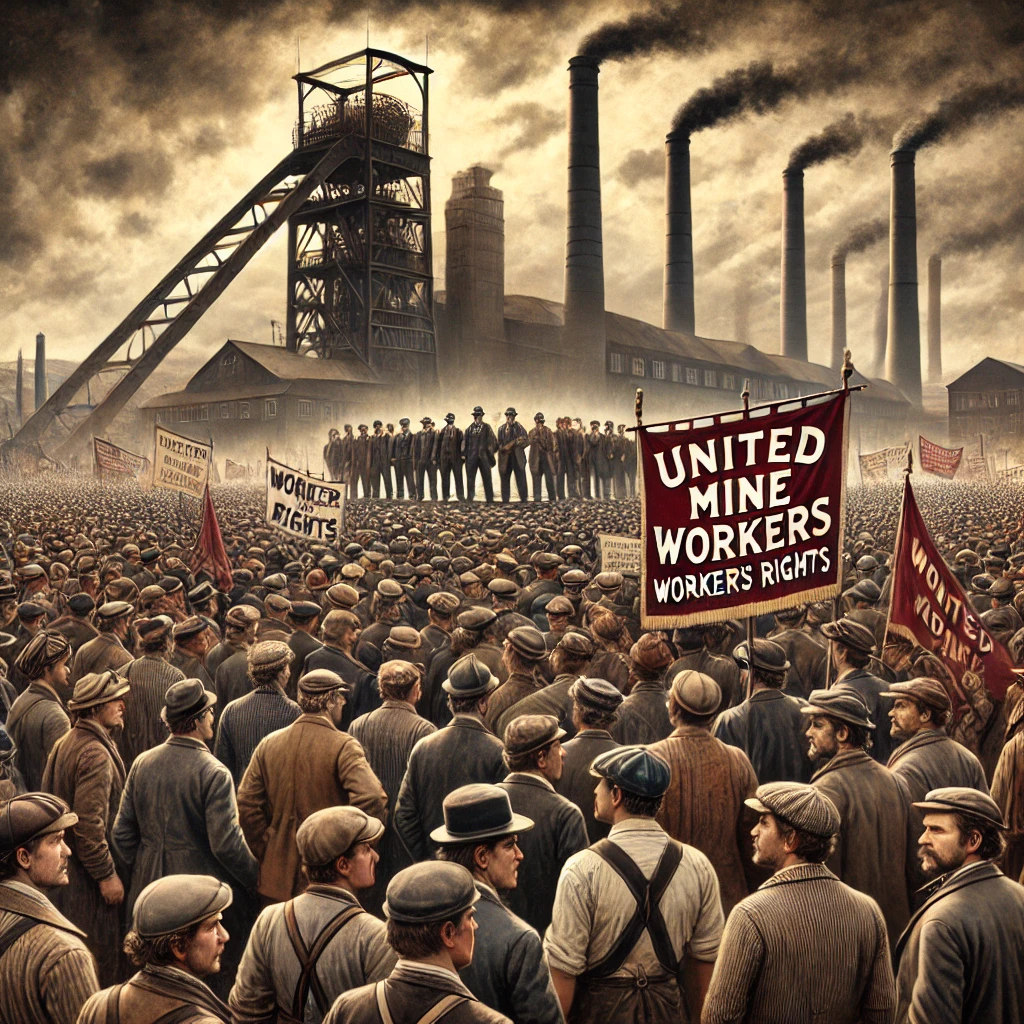On January 25, 1890, the United Mine Workers of America (UMWA) was founded in Columbus, Ohio, marking a pivotal moment in the labor movement. Emerging during an era of intense industrial growth and exploitation of labor, the UMWA was created to address the dire working conditions, low wages, and lack of protections faced by coal miners. Representing both skilled and unskilled workers, the union’s formation symbolized a collective resolve to challenge the status quo and demand fairness in an industry central to the nation’s economy.

The establishment of the UMWA was influenced by earlier labor movements, but it uniquely unified miners across racial and ethnic lines—a groundbreaking achievement at the time. This inclusivity allowed the UMWA to build a robust coalition, strengthening its ability to negotiate with powerful mine operators and advocate for systemic change.
A Movement for Change
Throughout the late 19th and early 20th centuries, the UMWA spearheaded numerous campaigns to improve the lives of coal miners. The union’s demands included higher wages, shorter working hours, and safer working conditions. Notably, the UMWA’s influence extended beyond the mines, contributing to the broader labor movement and setting precedents for worker protections nationwide.
One of the UMWA’s most significant achievements came in 1897, with the successful coal strike that resulted in substantial wage increases for miners. The strike underscored the union’s ability to mobilize workers and negotiate effectively, laying the groundwork for future victories. Additionally, the UMWA was instrumental in the passage of key labor legislation, such as the Fair Labor Standards Act of 1938, which established minimum wage and overtime pay standards.

Shaping Labor Rights and Legislation
The impact of the UMWA extends far beyond its foundational years. The union’s advocacy not only improved the lives of miners but also highlighted the importance of collective bargaining as a tool for achieving economic justice. Today, the principles championed by the UMWA—fair wages, safe workplaces, and equality—remain central to labor movements across various industries.
While the coal industry has declined in recent decades, the UMWA continues to play a vital role in representing workers and addressing contemporary challenges, such as job displacement due to automation and the transition to renewable energy sources. The union’s adaptability demonstrates its commitment to supporting workers in an evolving economic landscape.
A Legacy of Solidarity

The founding of the United Mine Workers of America serves as a powerful reminder of the transformative potential of solidarity. Its legacy underscores the enduring importance of organized labor in advocating for workers’ rights and advancing social justice. On this day in history, we celebrate the union’s contributions to shaping a more equitable society and its ongoing relevance in the fight for economic fairness.
